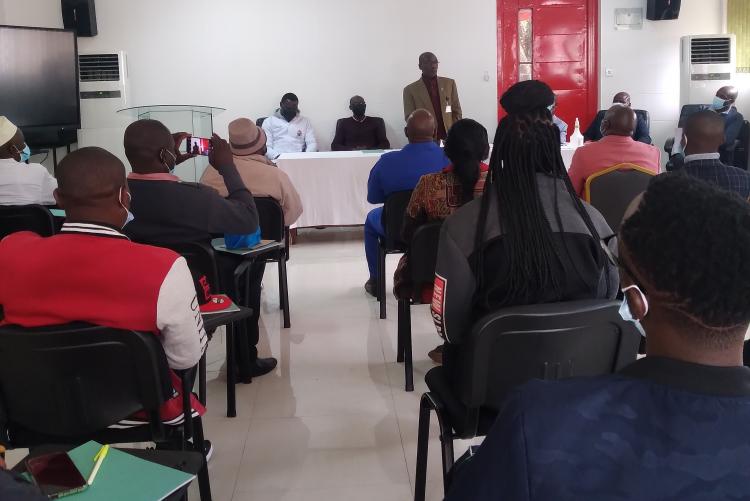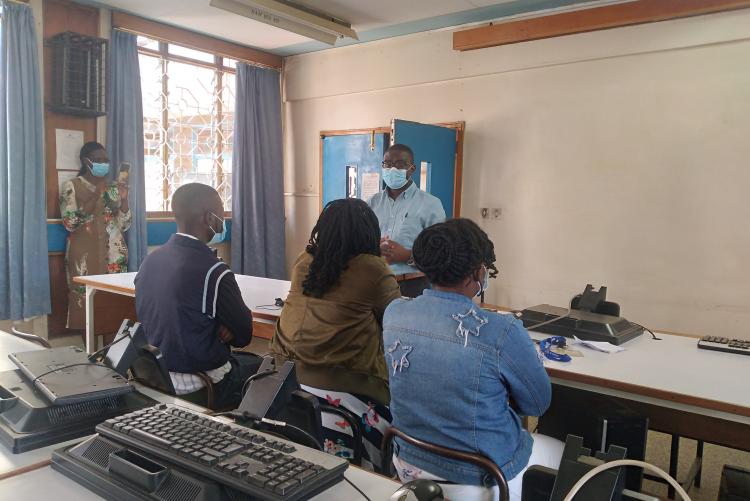'The Democratisation of Knowledge in Global Heath Using Extended Reality’
Background
Virtual Reality in Medicine and Surgery (VRiMS) is an extended reality (XR) educational and research group that uses live streaming 360Video with overlay of additional camera angles to deliver immersive techniques in surgical education. 360Video can be viewed on mobile phones with low-cost headsets for an immersive experience in surgical training.
360Video of cadaveric techniques was initially chosen, instead of live surgery, to demonstrate the benefits of using this approach. Live streaming surgical procedures on patients in VR for prolonged periods is not well tolerated but cadaveric techniques allow surgeons to demonstrate procedures with rapid progression though key manoeuvres and the principles of surgery, without the inconvenience of haemostasis and the unpredictable nature of live surgery on patients.
The VRiMS programme has now delivered cadaveric live streaming resources to over 6000 surgeons from over 100 countries in six one-week courses over two years since its inception. All these resources have been provided at no cost to the end user.
The last VRiMS course sponsored 11 East African surgeons to attend the UK for a 4-day hands on cadaveric surgical course in World Health Organisation Global Burden of Disease Procedures. This was live streamed to 61 countries and 1500 participants. We have also created metaverse resources to enable surgeons to meet and participate in an educational immersive experience from around the world.
We have developed simulation models that utilise augmented reality applications as well as virtual reality applications that are entirely digitally created for mandatory training such as basic life support, advanced trauma and life support and fire safety training. These resources require more sophisticated headsets that were provided for an in-person experience. All these techniques will be hosted with our collaborating partners.
We have conducted an independent qualitative study to evaluate the impact of VR intervention on the development of surgical skills and expertise of surgeons. The evaluation investigates different dimensions that include VR implementation and delivery as well as participants’ expectations, experiences and learning.
Aims of the VRiMS Course
To introduce surgical and academic centres to the utility and value of 360Video live streaming in surgical education and to form a steppingstone to the introduction of more sophisticated techniques in virtual reality, augmented reality and the metaverse in simulation training.
Methods
The VRiMS team purposes a three day live streaming course in which an appropriately regulated cadaveric resource is made available, only a single full specimen is required and ideally fresh frozen. The resource must comply with all regulatory processes in the collaborating partner countries and suitable consented for images (pictures and videos) to be used online. We will provide all the technical support and equipment (see Figure 1) in enabling the live streaming with 360 cameras and additional cameras for overlay.
We require the hosting centre to provide basic surgical instruments and a faculty of surgeons able to demonstrate the techniques. We recommend an introduction lecture from the chosen specialty, and we will also be able to live stream clinical examination and simulation model demonstrations.
The course will be hosted on a GoTo platform and delegates will be instructed on how to convert their mobile phones into VR headsets with sponsorship sought to provide low-cost VR headsets ($20 each) through partnerships. These headsets can be posted out to the registered participants. The content will be securely live streamed and made available for the hosting centre to restream as an education resource for future events.


